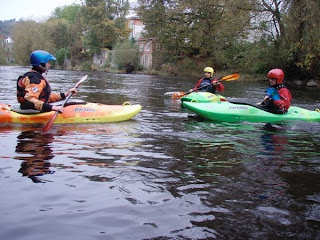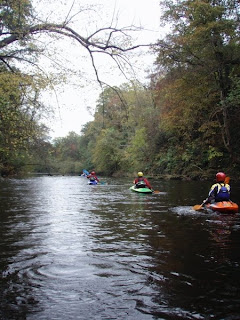
Where does the adaptiveness of adaptive experts come from? Adaptive experts are assumed to possess as the source of their flexibility and inventiveness, conceptual knowledge of the objects of the procedures (that is, what each of these objects is like). ‘Flexibility and adaptability seem to be possible only when there is some corresponding conceptual knowledge to give meaning to each step of the skill and provide criteria for selection among possible alternatives for each step within the procedure’ (Hatano, 1982: 15). Such conceptual knowledge enables experts to construct mental models of the major entities of the domain, which can be used in mental simulation. Using Holyoak's (1991) expression, the key to adaptive expertise is the development of deeper conceptual understanding of the target domain. Needless to say, such conceptual understanding must be connected to procedural competencies and meta-cognitive awareness and monitoring of one's own understanding.
It is hypothesized that if people ask themselves why a skill works or why each step is needed during its application, this question will tend to lead them to form some conceptual knowledge about the object (Hatano & Oura, 2003). This was similar to what Donald Schön (1991) called ‘reflection-in-action’ as against technical problem solving in his attempt to characterise professionals. Although experts are seldom taught conceptual knowledge in the verbalised form, they may construct it in the process of solving problems or performing tasks in the domain.
 Identifying particular kinds of learning experiences that develop adaptive expertise is a serious challenge for educational researchers. Hatano and Inagaki (1992) proposed four conditions that would promote sustained comprehension activity that is likely to lead to adaptive expertise. Their proposal is based on the assumption that cognitive incongruity (a state of feeling that current comprehension is inadequate; for example, wondering why a given procedure works) induces enduring comprehension activity, including seeking further information from the outside, retrieving another piece of prior knowledge, generating new inferences, examining the compatibility of inferences more closely, and so forth. The first two of the proposed conditions are concerned with the arousal of cognitive incongruity and the last two with the elicitation of committed and persistent comprehension activity in response to induced incongruity. The four conditions are: (1) encountering fairly often a novel problem to which prior knowledge is not readily applicable or a phenomenon that disconfirms a prediction based on prior knowledge; (2) engaging in frequent dialogical interaction, such as discussion, controversy, and reciprocal teaching; (3) being free from urgent external need (e.g., material rewards or positive evaluations), and thus able to pursue comprehension even when it is time consuming; and (4) being surrounded by reference group members who value understanding.
Identifying particular kinds of learning experiences that develop adaptive expertise is a serious challenge for educational researchers. Hatano and Inagaki (1992) proposed four conditions that would promote sustained comprehension activity that is likely to lead to adaptive expertise. Their proposal is based on the assumption that cognitive incongruity (a state of feeling that current comprehension is inadequate; for example, wondering why a given procedure works) induces enduring comprehension activity, including seeking further information from the outside, retrieving another piece of prior knowledge, generating new inferences, examining the compatibility of inferences more closely, and so forth. The first two of the proposed conditions are concerned with the arousal of cognitive incongruity and the last two with the elicitation of committed and persistent comprehension activity in response to induced incongruity. The four conditions are: (1) encountering fairly often a novel problem to which prior knowledge is not readily applicable or a phenomenon that disconfirms a prediction based on prior knowledge; (2) engaging in frequent dialogical interaction, such as discussion, controversy, and reciprocal teaching; (3) being free from urgent external need (e.g., material rewards or positive evaluations), and thus able to pursue comprehension even when it is time consuming; and (4) being surrounded by reference group members who value understanding.
These conditions can be rephrased in terms of the nature of the practice in which people participate. For example, when a practice is oriented toward skillfully solving a fixed class of problems (e.g., making the same products for years), participants tend not to encounter novel problems, and thus they are likely to become experts distinguished in terms of speed, accuracy, and automaticity (i.e., routine experts). In contrast, when successful participation in a practice requires meeting varied and changing demands (e.g., making new, fashionable products), participants' prior knowledge must be applied flexibly, and they are likely to acquire adaptive skills. From socio-cultural perspectives, adaptive experts may not be characterised only by their domain-specific knowledge; in order to invent new procedures, for example, in addition to deeper conceptual understanding, people have to be able to participate in discourse, offer valuable suggestions, evaluate others' suggestions, and so on.
 Adaptive experts exhibit a strong proactive desire to continuously learn from their experiences, improve performance and accept that their understanding will always change (Hatano & Oura, 2003). Underpinning beliefs and attitudes, along with the behaviours that are inevitably associated with such views can be both learned and taught (Perkins & Grotzer, 1997; Perkins, Jay & Tishman, 1993b). For any leader who is more able to learn flexibly in new situations, as with any learning, the process will become natural, unconscious and automated (Shuell, 1990). Fazey et al., (2005) suggest that a person who learns how to be a good learner will eventually develop greater openness to change and become more adaptive. It is anticipated that they will become a more effective outdoor leader, particularly on expeditions, as a consequence.
Adaptive experts exhibit a strong proactive desire to continuously learn from their experiences, improve performance and accept that their understanding will always change (Hatano & Oura, 2003). Underpinning beliefs and attitudes, along with the behaviours that are inevitably associated with such views can be both learned and taught (Perkins & Grotzer, 1997; Perkins, Jay & Tishman, 1993b). For any leader who is more able to learn flexibly in new situations, as with any learning, the process will become natural, unconscious and automated (Shuell, 1990). Fazey et al., (2005) suggest that a person who learns how to be a good learner will eventually develop greater openness to change and become more adaptive. It is anticipated that they will become a more effective outdoor leader, particularly on expeditions, as a consequence.
It is hypothesized that if people ask themselves why a skill works or why each step is needed during its application, this question will tend to lead them to form some conceptual knowledge about the object (Hatano & Oura, 2003). This was similar to what Donald Schön (1991) called ‘reflection-in-action’ as against technical problem solving in his attempt to characterise professionals. Although experts are seldom taught conceptual knowledge in the verbalised form, they may construct it in the process of solving problems or performing tasks in the domain.
 Identifying particular kinds of learning experiences that develop adaptive expertise is a serious challenge for educational researchers. Hatano and Inagaki (1992) proposed four conditions that would promote sustained comprehension activity that is likely to lead to adaptive expertise. Their proposal is based on the assumption that cognitive incongruity (a state of feeling that current comprehension is inadequate; for example, wondering why a given procedure works) induces enduring comprehension activity, including seeking further information from the outside, retrieving another piece of prior knowledge, generating new inferences, examining the compatibility of inferences more closely, and so forth. The first two of the proposed conditions are concerned with the arousal of cognitive incongruity and the last two with the elicitation of committed and persistent comprehension activity in response to induced incongruity. The four conditions are: (1) encountering fairly often a novel problem to which prior knowledge is not readily applicable or a phenomenon that disconfirms a prediction based on prior knowledge; (2) engaging in frequent dialogical interaction, such as discussion, controversy, and reciprocal teaching; (3) being free from urgent external need (e.g., material rewards or positive evaluations), and thus able to pursue comprehension even when it is time consuming; and (4) being surrounded by reference group members who value understanding.
Identifying particular kinds of learning experiences that develop adaptive expertise is a serious challenge for educational researchers. Hatano and Inagaki (1992) proposed four conditions that would promote sustained comprehension activity that is likely to lead to adaptive expertise. Their proposal is based on the assumption that cognitive incongruity (a state of feeling that current comprehension is inadequate; for example, wondering why a given procedure works) induces enduring comprehension activity, including seeking further information from the outside, retrieving another piece of prior knowledge, generating new inferences, examining the compatibility of inferences more closely, and so forth. The first two of the proposed conditions are concerned with the arousal of cognitive incongruity and the last two with the elicitation of committed and persistent comprehension activity in response to induced incongruity. The four conditions are: (1) encountering fairly often a novel problem to which prior knowledge is not readily applicable or a phenomenon that disconfirms a prediction based on prior knowledge; (2) engaging in frequent dialogical interaction, such as discussion, controversy, and reciprocal teaching; (3) being free from urgent external need (e.g., material rewards or positive evaluations), and thus able to pursue comprehension even when it is time consuming; and (4) being surrounded by reference group members who value understanding.These conditions can be rephrased in terms of the nature of the practice in which people participate. For example, when a practice is oriented toward skillfully solving a fixed class of problems (e.g., making the same products for years), participants tend not to encounter novel problems, and thus they are likely to become experts distinguished in terms of speed, accuracy, and automaticity (i.e., routine experts). In contrast, when successful participation in a practice requires meeting varied and changing demands (e.g., making new, fashionable products), participants' prior knowledge must be applied flexibly, and they are likely to acquire adaptive skills. From socio-cultural perspectives, adaptive experts may not be characterised only by their domain-specific knowledge; in order to invent new procedures, for example, in addition to deeper conceptual understanding, people have to be able to participate in discourse, offer valuable suggestions, evaluate others' suggestions, and so on.
 Adaptive experts exhibit a strong proactive desire to continuously learn from their experiences, improve performance and accept that their understanding will always change (Hatano & Oura, 2003). Underpinning beliefs and attitudes, along with the behaviours that are inevitably associated with such views can be both learned and taught (Perkins & Grotzer, 1997; Perkins, Jay & Tishman, 1993b). For any leader who is more able to learn flexibly in new situations, as with any learning, the process will become natural, unconscious and automated (Shuell, 1990). Fazey et al., (2005) suggest that a person who learns how to be a good learner will eventually develop greater openness to change and become more adaptive. It is anticipated that they will become a more effective outdoor leader, particularly on expeditions, as a consequence.
Adaptive experts exhibit a strong proactive desire to continuously learn from their experiences, improve performance and accept that their understanding will always change (Hatano & Oura, 2003). Underpinning beliefs and attitudes, along with the behaviours that are inevitably associated with such views can be both learned and taught (Perkins & Grotzer, 1997; Perkins, Jay & Tishman, 1993b). For any leader who is more able to learn flexibly in new situations, as with any learning, the process will become natural, unconscious and automated (Shuell, 1990). Fazey et al., (2005) suggest that a person who learns how to be a good learner will eventually develop greater openness to change and become more adaptive. It is anticipated that they will become a more effective outdoor leader, particularly on expeditions, as a consequence.











